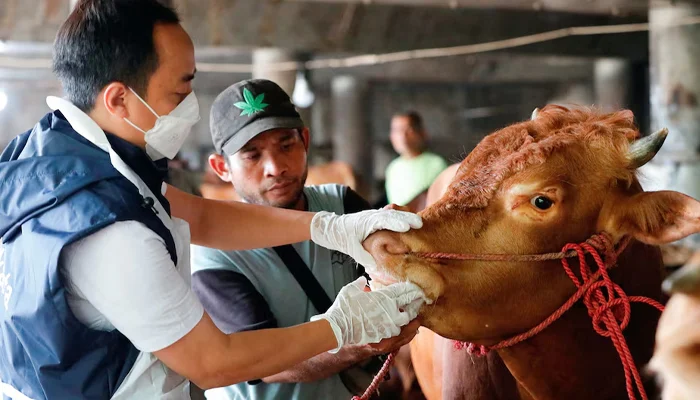Hungary Investigates Possible Biological Attack Amid Major Foot-and-Mouth Disease Outbreak
Hungary is grappling with its first confirmed case of foot-and-mouth disease (FMD) in over half a century, prompting fears of a potential biological threat. Authorities are urgently examining the possibility that this outbreak could have been deliberately introduced.
The alarming development came after the virus was detected in a batch of imported animals. This triggered immediate restrictions and strict biosecurity measures, especially in the region of Békés County, where the infected livestock was found.
According to government officials, the situation is being treated as highly sensitive. Preliminary findings have raised suspicions that the outbreak may not be a natural occurrence. This has led to an investigation into whether intentional contamination may have played a role, sparking discussions around the possibility of a biological attack targeting Hungary’s agricultural infrastructure.
Widespread Concerns Over Livestock Health
The foot-and-mouth disease virus, known for its rapid spread among cloven-hoofed animals such as cattle, sheep, and pigs, can cause significant economic and agricultural disruption. Although it does not typically affect humans, the consequences for the meat and dairy industries can be severe.
In response, Hungary has implemented tight quarantine protocols, restricted movement of animals, and enhanced surveillance across farms and borders to prevent further spread. Local farmers are also being urged to remain vigilant and report any unusual symptoms in their livestock immediately.
Security and Agriculture Agencies Collaborate
Both security and agricultural departments are now working together to analyze the origin and scope of the outbreak. While no definitive conclusions have been drawn yet, the mere suspicion of biological interference has escalated the urgency and seriousness of the case.
Experts have emphasized the importance of containing the virus swiftly to avoid wider consequences for Hungary’s food supply and economy.
What Happens Next?
As investigations continue, Hungary remains on high alert. Authorities are committed to identifying the source and ensuring such an event does not recur. Public safety is not currently at risk, but farmers and stakeholders are encouraged to stay informed and follow all government-issued advisories.
The coming weeks will be critical in determining whether this is an isolated incident or part of a larger, more concerning agenda. Either way, Hungary’s response could set a new precedent for dealing with modern agricultural threats in the region.




+ There are no comments
Add yours